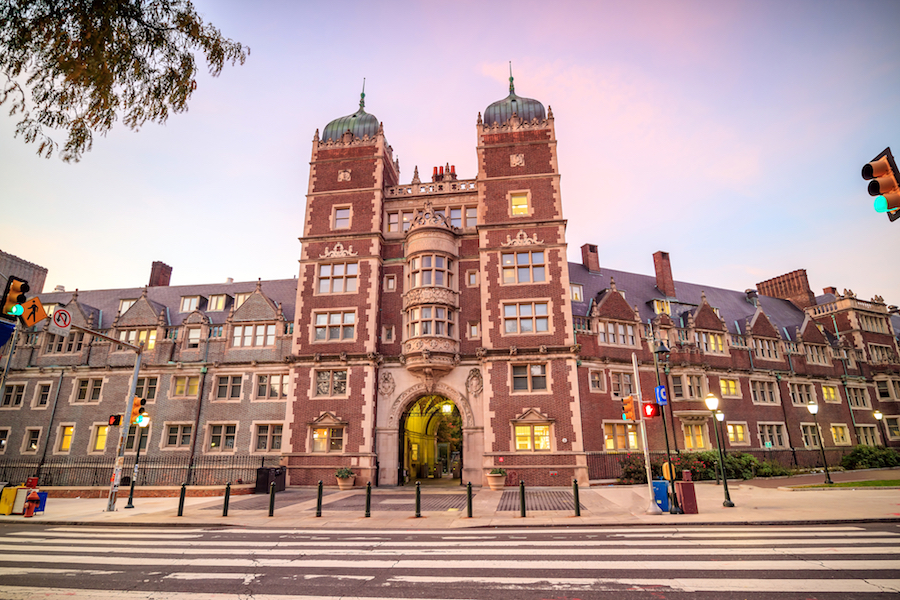Penn Soon Won’t Let Sophomores Live Off Campus
And some students are none too enthused about this decision.

University of Pennsylvania in Philadelphia, Pennsylvania USA
The University of Pennsylvania will soon require undergraduate students to spend an extra year living on campus — and some students aren’t pleased.
Currently, the university only requires freshman to live on campus; sophomores are permitted to find housing elsewhere. But in what Penn maintains is an effort to better support student wellness, students must soon live on campus during their freshman and sophomore years. The change will start with the class of 2024, which will arrive in 2020.
In an email sent out to the university community on Wednesday, Penn President Amy Gutmann and Provost Wendell Pritchett said the move is part of the university’s forthcoming “Second Year Experience Program,” which will offer “expanded programming and new events designed specifically for second-year students.”
“Housing all sophomores on campus will eliminate a major source of stress and anxiety for first-year students, who have told us that they feel pressured to consider second-year housing options during their first semester as Penn students,” Gutmann and Pritchett said in the email.
Some students, however, think the change will do little to eliminate stress for first-years. In fact, they even say it could fuel their anxiety during their second year. Their reasoning? Living on campus is pricey. For the 2018-19 academic year, living on campus cost a minimum of $10,200 for freshman and undergraduate students. Compare that with rents in the area, which, on the lower end, typically add up to anywhere between $7,500 or $10,200 each year.
https://twitter.com/lavidaleeyah_/status/1045039799751577602
Sophomore English major Isabella Simonetti, who currently lives on campus, said the cost is driving her to look into other housing options for her junior year. But she noted additional factors in wanting to leave campus as well, like an academically stressful environment.
“Freshman year at Penn can be really difficult, because it’s a big place and it’s a new place for freshman, and a lot of times it can be an unfriendly environment too,” Simonetti said. “It’s a competitive place. You don’t want to be around the people here 24/7. Sometimes it can be nice to go home to a separate place, I can imagine, and be able to have your own space that’s away from everyone, especially the things that are stressing you out.”
students are depressed cuz this school crushes their spirit,,,,….not bc they’re wondering where to live next yr
— neri (@marsquake) September 27, 2018
In addition, Greek life leaders worry that the plan could have a substantial affect on Greek houses, which typically attract sophomores looking to join the community, according to the student-run Daily Pennsylvanian.
The publication reports that Pritchett said the decision was recommended by the Task Force on a Safe and Responsible Campus Community, which was formed in 2017 in response to concerns that Penn’s Greek life and off-campus parties fostered an environment conducive to “rape culture” and underage drinking.
“There is evidence that students engaged in College-House type programs adjust better to college life, develop healthier habits, engage in fewer high-risk behaviors, and perform better academically than peers living off-campus,” Gutmann and Pritchett said in the letter regarding the forthcoming change.
According to the note, the “Second Year Experience” will include programs like the existing “Majors and More Dinners” and the “Wharton Sophomore Experience,” as well as sophomore-specific courses, celebrations and social events.


